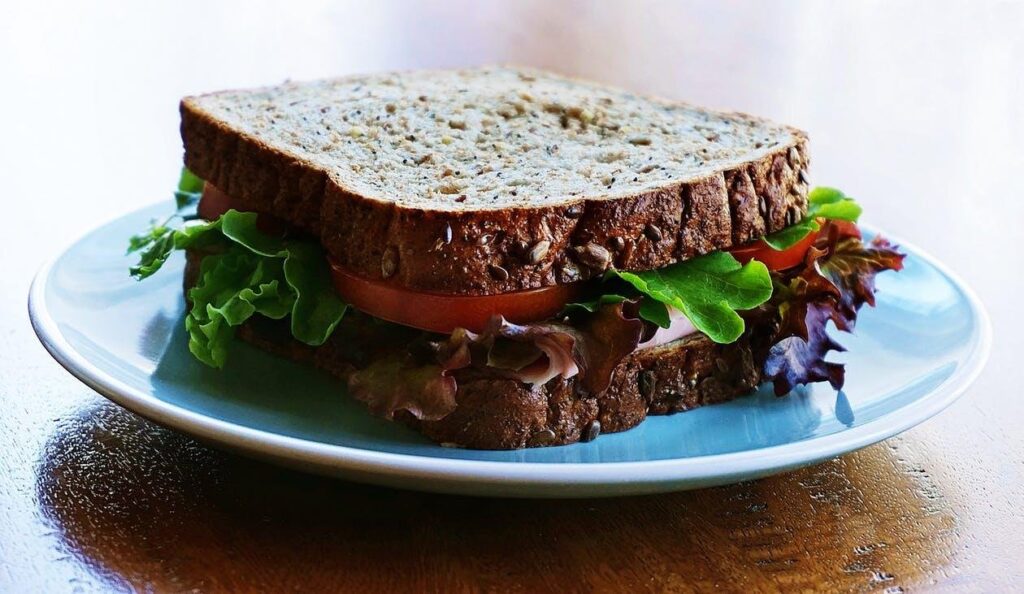We all need to reduce our carbon footprint. Struggling to think how you can reduce yours? Here are 10 small changes you can make tomorrow.
1. Take a shorter shower
Showering uses 50g of CO2 per minute.
The average person in the UK spends 8 minutes in the shower (ie 400g per day, 146kg per year).
Halve that and shower for 4 minutes and you’ll save 73kg of CO2 a year – more than a flight from London to Paris (62 kg CO2).
2. Eat a plant based breakfast
It’s pretty well known now that meat has a high carbon footprint. Swapping your full English for a bowl of porridge every day for a year could save you 1203kg CO2e – that’s more than a return flight from London to New York.
A standard full English breakfast: 3746g CO2e
A bowl of porridge with Soy milk: 450g CO2e
3. Work from home / lighten the carbon on your commute
Not travelling to work will likely reduce your carbon footprint (unless you walk/cycle or live in a palace with 1000 lights).
If you have to go into work, walking, cycling or travelling on public transport is much better than driving.
4. Think before you sent that email
Could you have a chat in person instead? Sending a short email uses 0.3g of CO2e – ok we get that it’s a small number, but how many emails do you think you send a year? They add up.
5. Eat leftovers for lunch
Making a bit more dinner and saving it for lunch the next day will save you time and also save you carbon. Producing, transporting and refrigerating your meal deal will likely have a footprint of around 3kg CO2e.
A ham and cheese sandwich from the shop: 1.35kg CO2e
A ham and cheese sandwich made at home: 0.62kg CO2e

6. Swap your 4pm snack for something local
If you swap your usual chocolate bar for seasonal fruit you can have four apples for the same carbon cost as just one bar of Dairy Milk (although please don’t take this as recommended health advice).
A small bar of Cadbury’s Dairy Milk: 169g CO2e
An apple from the UK: 32g
7. Drink local ale at your after work drinks
As a general rule, the less it’s had to travel, the lower the carbon footprint of your food/drink. Glass bottles use more carbon than cans, or a glass you’ll give back to the bar is even better.
A pint of local ale has a footprint of 0.65kg CO2e, a foreign bottled beer is 1kg CO2e.
8. Read a book instead of scrolling before bed
Using your smartphone uses 0.06kg of carbon per hour, the carbon footprint of a paperback book is 1kg CO2e.
So estimating that it takes roughly three weeks to read a book (for one hour a day) the book comes out at 0.04kg CO2 per hour.
And if you take it to the charity shop when you’re done with it, someone else can enjoy it too – for 0kg of carbon. Or vice versa, if you buy your books second hand, you can reduce that hourly carbon cost to pretty much 0.
9. Turn your heating down
The Energy Saving Trust recommends heating your home to between 18 to 21 degrees celsius during winter. Opting for 18, rather than 21 could save you £240 per year, according to thisismoney.co.uk.
18 degrees is also the recommended temperature for the best night’s sleep and it’ll also reduce your carbon emissions.
10, Switch your plugs off at night
Leaving your appliances on standby can use up to 90% of their normal power mode. It’s estimated that 8% of the electricity we use at home comes from appliances left on standby. Switching them off would reduce your carbon footprint and save you money – think what you could do with that extra 8%…


Recent Posts
Categories